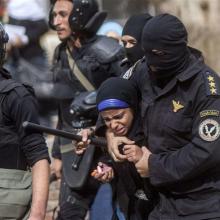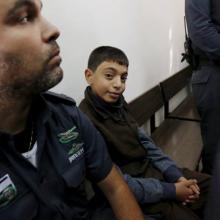2014 Alkarama Award for Human Rights Defenders to Shireen Issawi
The Alkarama Award is a prize presented every year to an individual or an organisation that has significantly contributed to the promotion and protection of human rights in the Arab world.





